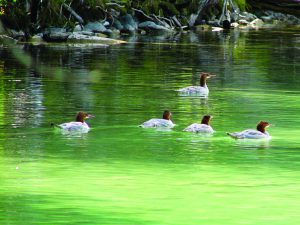BY HARRY WEEKES
 I am incredibly lucky in that I have access to almost anything I want almost as quickly as I want it. If I order in the next 10 minutes, I can get a pair of sneakers by tomorrow; if I am hungry, the fruits and vegetables aisle alone provides access to a vast swath of the world’s bounty—both its ecosystems and also its cultures; if I want to know the Swahili word for hog, in 0.45 seconds I can find out that it’s “nguruwe.”
I am incredibly lucky in that I have access to almost anything I want almost as quickly as I want it. If I order in the next 10 minutes, I can get a pair of sneakers by tomorrow; if I am hungry, the fruits and vegetables aisle alone provides access to a vast swath of the world’s bounty—both its ecosystems and also its cultures; if I want to know the Swahili word for hog, in 0.45 seconds I can find out that it’s “nguruwe.”
There are hidden costs for these conveniences, though. The easiest encapsulation of these costs is, quite simply, impatience. The more I train myself to get things now, the more I quickly check my phone to see if someone responded to a text, or to access a funny video, or simply to check the time, the more I want to. The more I need to.
An increasingly important element of my relationship with nature is an embedded and necessary patience. Much of nature unfolds relatively predictably—the praying mantises move in September, the seasons come and go, the ground squirrels disappear in August. The nice thing, though, is that very little of this is precise. While I can imagine a certain ceremony around bidding farewell to the geese if they left on Friday, Oct. 12 at 7:15 a.m. sharp, there is also something powerful about not knowing.
Each Labor Day over the past several years I have been lucky enough to go to our family cabin with almost my entire family. This year, we went with 14 people and seven dogs.
Labor Day always brings cold nights, and this year was no exception. What was exceptional was the clarity of the air. The pre-dawn sky was the color of cobalt, and it was chilly enough that wisps of mountain fog curled off the water, revealing small eddies of wind not evident from the glassy surface of the lake.
I sat on the dock with two mini-dachshunds in my lap, reading. There was a low grunt. At the tip of an arrow of ripples cruised a common merganser. And another. Then two more. I immediately romanticize and anthropomorphize all of nature. I imagined this was a small family group, hunting in the late days of summer, mom quietly talking to her kids. The shaggy crests and sharp bills are easy-to-identify field marks. Head up for a moment, then down, face forward into the water, moving side to side. The mergansers spend hours each morning minnowing in the shallows off our dock. No sooner are they all there than with a quick little jump each disappears beneath the surface, the water closing in like mercury, erasing any evidence that just milliseconds ago there had been birds.
Eventually, they emerge (exactly where is always a guessing game). One after another they pop up, then send out small bird barks and grunts, and move along.
I find that when I focus on precisely what I need, it is, unfortunately, exactly what I get. But when I sit, when I am forced into the patience of watching something over which I have little or no control, I realize that natural patience is closely coupled with surprise and serendipity. I don’t know that I would have seen the small tornado-like eddies of the fog, or realized that the light on the wings of fluttering birds is not like anything else, it is the thing. In these moments there is expansion, a wonderful antithesis and antidote to the contraction I can feel at my computer. And to know the bark of a merganser? That’s a bonus I simply cannot get in 0.45 seconds.
Harry Weekes is the founder and head of school at The Sage School in Hailey. This is his 47th year in the Wood River Valley, where he lives with his wife Hilary and their three kids—Georgia, Penelope and Simon—a nice little flock.
